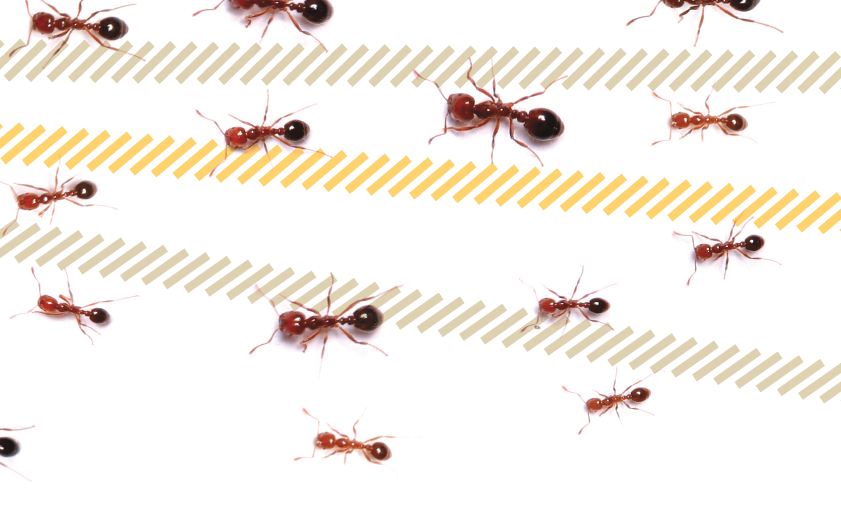Ants Marching?
Psychology
A study about ant colonies reveals a possible exception to the wisdom of crowds.
By Nathaniel Clarkson

It’s generally assumed that groups make better decisions than individuals. The more minds working together to solve a problem, the more likely they’ll arrive at the best answer. This idea, known as the “wisdom of crowds,” is supported by extensive research that’s been turned into bestselling popular psychology books like Predictably Irrational (Dan Ariely) and The Wisdom of Crowds (James Surowiecki).
A new study, the subject of a recent article in The Atlantic by Olga Khazan, released by Arizona State University, in cooperation with Uppsula University (Sweden), offers a possible exception to this assumption. Researchers set up a study in which ant colonies would choose between two different “houses.” Knowing that ants tend to prefer darker abodes, researchers gave ant colonies a choice between options with varying degrees of light to see which they would choose. In the first trial the difference between the two options was subtle; but in the second trial the ants were presented with two choices where one was considerably darker than the other.
Researchers wanted to know how the varying levels of contrast between the two options would influence the choice made by a crowd of ants compared to the choice made by individual ants. Researchers found that crowds of ants tend to make better decisions than individual ants when it comes to choosing between two options with subtle differences. But when faced with a choice where one option is clearly better than the other, crowds actually performed worse than individuals. It seems the “wisdom of the crowds” theory fell apart for ant crowds when faced with an easier decision.
When there was only a slight difference between the two dwelling options, the ant crowd performed better than the individual ant by picking the darker abode more often. But when faced with a stark difference between the two dwelling options, the ant crowd made the wrong decision more often than the individual ant by picking the lighter abode.
Researchers theorize that when a number of ants in the crowd found the inferior abode first, their choice was sufficient to influence the remaining ants in the crowd. In contrast, the individual ant made the right decision more often, theoretically, because there were no other ants present to influence the decision.
This study of ant colonies begs the question of whether the results have any application to human decision-making. Khazan, in her piece for The Atlantic, writes, “Personally, these ants reminded me of soccer riots, mob attacks, or even the decision to join terror groups. Or, perhaps less dramatically, inexplicably crowded brunch places with low Yelp ratings.”
The study offers a possible lesson for fraternities and other member organizations which must make simple and challenging decisions weekly. Obviously poor risk reduction decisions, for instance, have a tendency to originate in small factions, outside the chapter’s formal meeting. By the time a meeting occurs, faction members may have already won over enough other members to neutralize rational decision-makers who recognize the obvious risk of such a poor decision.
Guarding against such decision-making failures requires a combination of preparation and patience that can restore the wisdom of the crowd. Some chapters employ a governance procedure whereby major decisions such as bylaw changes must be approved by a vote over two consecutive weekly meetings, thus ensuring that an irrational decision is not made due to the pressure of time. Other chapters have assigned one or more members to play the devil’s advocate for all major decisions to make sure the group has considered the possible consequences of all options.
Khazan again: “We can sometimes be conned into making an extremely poor choice – even when a much better alternative is clearly available – simply because those around us have made rash decisions and we’re following their lead.”
Though humans and ants have little else in common, the ant study reveals an important lesson for leaders: groups that exercise patience in weighing all the options will be rewarded.